Piles (Hemorrhoids) Treatment in Ghaziabad & Delhi NCR: Find Painless Solutions
Advanced Laser Surgery & Minimally Invasive Options for Lasting Relief
Discover Your SolutionDealing with discomfort, pain, or bleeding from the anal region can be an incredibly sensitive and often embarrassing experience. If you're searching for "piles treatment Ghaziabad" or "hemorrhoids symptoms Delhi," you're not alone. Piles, medically known as hemorrhoids, are a common condition that many people face, yet often suffer in silence. It's time to break the silence and find effective, modern solutions.
This comprehensive guide is designed to demystify piles, explain their causes, highlight the serious complications of delaying treatment, and delve into the latest, most advanced, and **painless piles treatment** options available in Ghaziabad and Delhi NCR, including **laser piles surgery** and **stapled hemorrhoidopexy**. Our goal is to empower you with knowledge and encourage you to seek timely medical attention for lasting relief and improved quality of life.
What Are Piles (Hemorrhoids)? Understanding the Basics
Piles, or hemorrhoids, are swollen and inflamed veins that develop in the lower rectum and anus. They are similar to varicose veins found in the legs, but they occur in a much more sensitive area.
Types of Hemorrhoids: Internal vs. External
- Internal Hemorrhoids: Located inside the rectum, these are usually painless because they are above the dentate line (where pain receptors are few). However, they can cause bleeding during bowel movements and may prolapse (protrude outside the anus).
- External Hemorrhoids: Found under the skin around the anus, these are typically more painful and can cause itching, swelling, and discomfort, especially if a blood clot forms within them (thrombosed hemorrhoids).
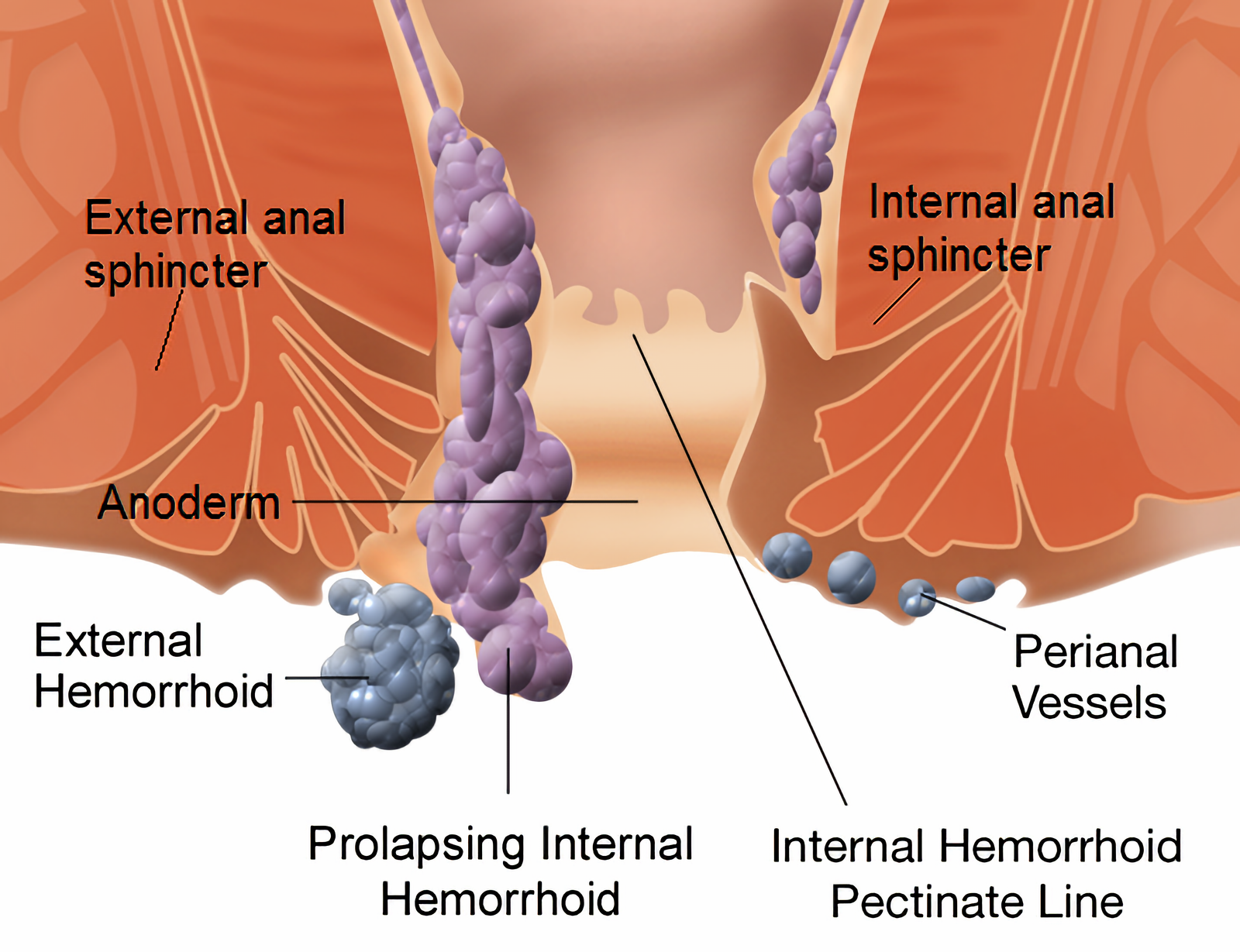
Understanding the types of hemorrhoids.
Common Causes & Risk Factors for Piles
Hemorrhoids develop due to increased pressure in the veins around the anus. Several factors can contribute to this pressure:
- Chronic Constipation or Diarrhea: Both conditions involve straining or frequent bowel movements that can put pressure on anal veins.
- Straining During Bowel Movements: This is a primary cause, often linked to constipation.
- Prolonged Sitting on the Toilet: This position can cause blood to pool in the anal veins.
- Pregnancy: Increased pressure from the growing uterus, hormonal changes, and straining during childbirth can lead to hemorrhoids.
- Obesity: Excess body weight puts additional pressure on the pelvic region.
- Low-Fiber Diet: A diet lacking fiber can lead to harder stools and increased straining.
- Aging: Tissues supporting the veins in the rectum and anus can weaken with age.
- Heavy Lifting: Repeated heavy lifting can increase abdominal pressure.
Symptoms of Piles & When to Seek Expert Help in Ghaziabad
Recognizing the symptoms early is key to effective and less invasive treatment. Common symptoms include:
- Bleeding from the Anus: Bright red blood during or after bowel movements, often seen on toilet paper or in the toilet bowl.
- Pain or Discomfort: Especially with external hemorrhoids or thrombosed hemorrhoids.
- Itching or Irritation: Around the anal region.
- Swelling or Lumps: Around the anus, which may be tender.
- Protrusion: A lump or tissue that protrudes from the anus during bowel movements and may need to be pushed back in.
- Leakage of Feces or Mucus: In severe cases.
If you experience any of these symptoms, especially bleeding from the anus, it is crucial to consult a specialist. Do not delay, as early diagnosis can prevent complications and open doors to advanced, painless treatments.
The Dangers of Delaying Piles Treatment: Complications You Must Avoid
Ignoring piles or delaying treatment can lead to a range of uncomfortable, painful, and potentially serious complications. These are not merely nuisances but indicators of worsening health that require immediate attention:
- Anemia: Chronic blood loss from bleeding hemorrhoids can lead to iron deficiency anemia, causing fatigue, weakness, and shortness of breath.
- Thrombosed Hemorrhoids: A blood clot can form inside an external hemorrhoid, leading to severe pain, swelling, and a hard lump around the anus. This often requires urgent medical intervention.
- Strangulated Hemorrhoids: If an internal hemorrhoid prolapses and its blood supply is cut off by the anal muscles, it becomes strangulated. This is extremely painful and can lead to tissue death (gangrene), requiring emergency surgery.
- Infection: Open sores or inflamed tissue around hemorrhoids can become infected, leading to abscess formation.
- Skin Tags: After an external hemorrhoid has healed or a blood clot has resolved, a skin tag may remain, which can be itchy and difficult to clean.
Treatment Options for Piles: Medical and Surgical Approaches
Depending on the severity and type of piles, various treatment options are available, ranging from conservative medical management to advanced surgical procedures. Your specialist will recommend the most suitable approach based on your specific condition.
Advanced & Painless Piles Treatment Options in Ghaziabad & Delhi NCR
Gone are the days of painful, prolonged recovery from traditional piles surgery. Modern medical advancements offer highly effective, minimally invasive, and virtually painless treatment options for hemorrhoids. At Shri Tirupati Hospital, we specialize in these cutting-edge procedures.
1. Laser Piles Surgery (Laser Hemorrhoidoplasty - LHP)
Laser Hemorrhoidoplasty (LHP) is one of the most revolutionary and sought-after treatments for piles, especially for internal hemorrhoids. It's a minimally invasive procedure that uses a highly focused laser beam to shrink and seal the hemorrhoidal tissue from within.
- How it Works: A thin laser fiber is inserted into the hemorrhoid. The laser energy is then delivered, causing the hemorrhoid to shrink and the blood vessels supplying it to coagulate and close.
- Key Benefits:
- Virtually painless procedure
- No cuts, no stitches, no open wounds
- Minimal bleeding
- Quick recovery and discharge (often same-day)
- Faster return to daily activities and work
- Excellent cosmetic results
- Lower risk of complications like infection or incontinence
2. Stapled Hemorrhoidopexy (Procedure for Prolapse and Hemorrhoids - PPH)
Also known as the 'stapler hemorrhoidectomy,' Stapled Hemorrhoidopexy is another advanced, minimally invasive surgical technique for treating prolapsed internal hemorrhoids.
- How it Works: A circular stapling device is used to remove a ring of prolapsed hemorrhoidal tissue from above the hemorrhoids, within the anal canal. This lifts the hemorrhoids back into their normal position and cuts off their blood supply, causing them to shrink.
- Key Benefits:
- Significantly less painful than traditional hemorrhoidectomy
- Faster recovery time
- No external wounds or stitches
- Effective for prolapsed internal hemorrhoids
Other Minimally Invasive Options:
- Rubber Band Ligation: A small rubber band is placed around the base of an internal hemorrhoid to cut off its blood supply, causing it to wither and fall off.
- Sclerotherapy: A chemical solution is injected into the hemorrhoid to shrink it.
Swift Recovery & Post-Treatment Care for Piles
One of the most significant advantages of modern piles treatments like laser surgery and stapled hemorrhoidopexy is the remarkably swift and smooth recovery process.
What to Expect During Recovery:
- Minimal Discomfort: Most patients experience only mild discomfort, manageable with over-the-counter pain relievers.
- Quick Return to Activity: Many patients can return to light daily activities and work within 1-2 days after laser treatment. PPH recovery is also significantly faster than traditional surgery.
- No Hospital Stay: Procedures are often performed on an outpatient basis, allowing you to return home the same day.
- Post-Procedure Care: Your specialist will provide specific instructions, which may include dietary advice, gentle hygiene, and avoiding strenuous activities for a short period.
Piles Treatment FAQs: Your Questions Answered by Experts in Ghaziabad
We understand you might have many questions about piles and their treatment. Here are answers to some frequently asked questions:
Piles, also known as hemorrhoids, are swollen veins located in the lower rectum and anus. They can be internal (inside the rectum) or external (under the skin around the anus). They occur when increased pressure in these veins causes them to swell and bulge. Common causes include chronic constipation or diarrhea, straining during bowel movements, prolonged sitting on the toilet, pregnancy, obesity, and a low-fiber diet.
While often not life-threatening, untreated piles can lead to significant discomfort and serious complications. These include chronic pain, bleeding (leading to anemia), infection, strangulated hemorrhoids (where blood supply is cut off, causing severe pain and tissue death), and thrombosis (blood clot formation within the hemorrhoid). Seeking timely treatment is crucial to prevent these issues.
At Shri Tirupati Hospital in Ghaziabad, we offer advanced, minimally invasive treatments for piles. The most effective options include Laser Hemorrhoidoplasty (LHP) and Stapled Hemorrhoidopexy (PPH). These modern techniques offer significant advantages over traditional surgery, such as less pain, faster recovery, and minimal scarring.
Laser Hemorrhoidoplasty (LHP) is considered a virtually painless procedure compared to traditional surgery. It involves using a laser fiber to shrink the hemorrhoid from within, sealing the blood vessels. Recovery is typically very swift, with most patients experiencing minimal discomfort and able to resume normal activities within a day or two. There's usually no cutting, stitches, or open wounds.
Stapled Hemorrhoidopexy (PPH) is a procedure that repositions prolapsed hemorrhoids back into their normal anatomical position using a circular stapling device. It cuts off the blood supply to the hemorrhoids, causing them to shrink. PPH is less painful than traditional hemorrhoidectomy because it involves tissue removal from above the pain-sensitive anal canal, leading to a quicker and more comfortable recovery.
You can easily consult our experienced piles specialists at Shri Tirupati Hospital. Simply call us at 0120-2782103 / 9873363434 or visit our website at www.shritirupatihospital.com to book an appointment. Early consultation can lead to effective and painless treatment, ensuring your comfort and well-being.
Take the First Step Towards Relief: Consult a Piles Specialist in Ghaziabad
Don't let the discomfort and embarrassment of piles affect your quality of life any longer. Seeking timely and expert medical advice is the most crucial step towards effective and **painless piles treatment**. Our specialists at Shri Tirupati Hospital are dedicated to providing compassionate and advanced care, ensuring your comfort and swift recovery.
Expert Piles Care at Shri Tirupati Hospital, Ghaziabad
Shri Tirupati Hospital is a leading multi-specialty healthcare center in Ghaziabad, recognized for its compassionate care, highly skilled medical professionals, and 24x7 emergency services. We are proud to be included among the top hospitals in Ghaziabad, committed to delivering exceptional healthcare outcomes.
Our experienced team, led by specialists like Dr. Rajeev Goel, Director and senior Laparoscopic and general surgeon with more than 35 years of experience, is fully equipped to accurately diagnose and safely treat piles using the latest techniques, ensuring you receive quality care tailored to your needs. For those searching for the "best piles doctor near me in Ghaziabad" or "laser piles surgery Delhi NCR," you can rely on our expertise.
For personalized health advice and treatment, connect with Shri Tirupati Hospital:
- 📞 Phone: 0120-2782103 / 9873363434
- 🌐 Website: www.shritirupatihospital.com
- Social Media: Follow us on Facebook and Instagram for regular health updates.
- 📍 Google Page: Shri Tirupati Hospital on Google
Important Medical Disclaimer
This information is provided strictly for educational purposes and should not be considered a substitute for professional medical advice. Always consult with a qualified healthcare provider for any concerns regarding personal health, diagnosis, or treatment options.

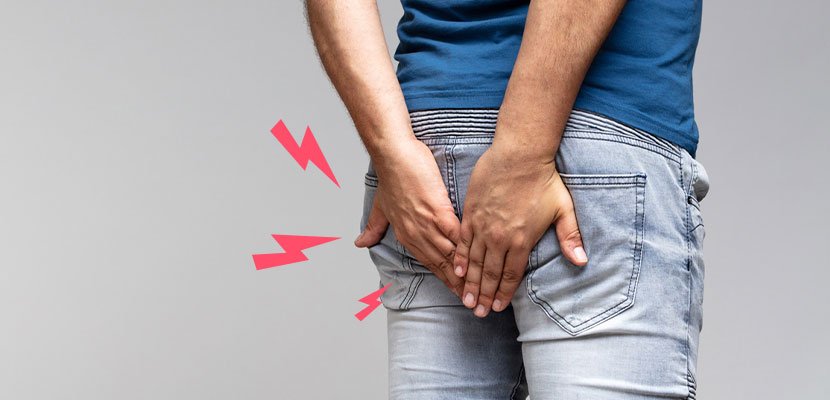

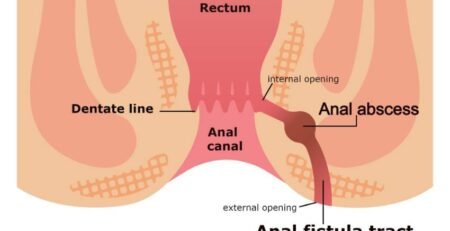
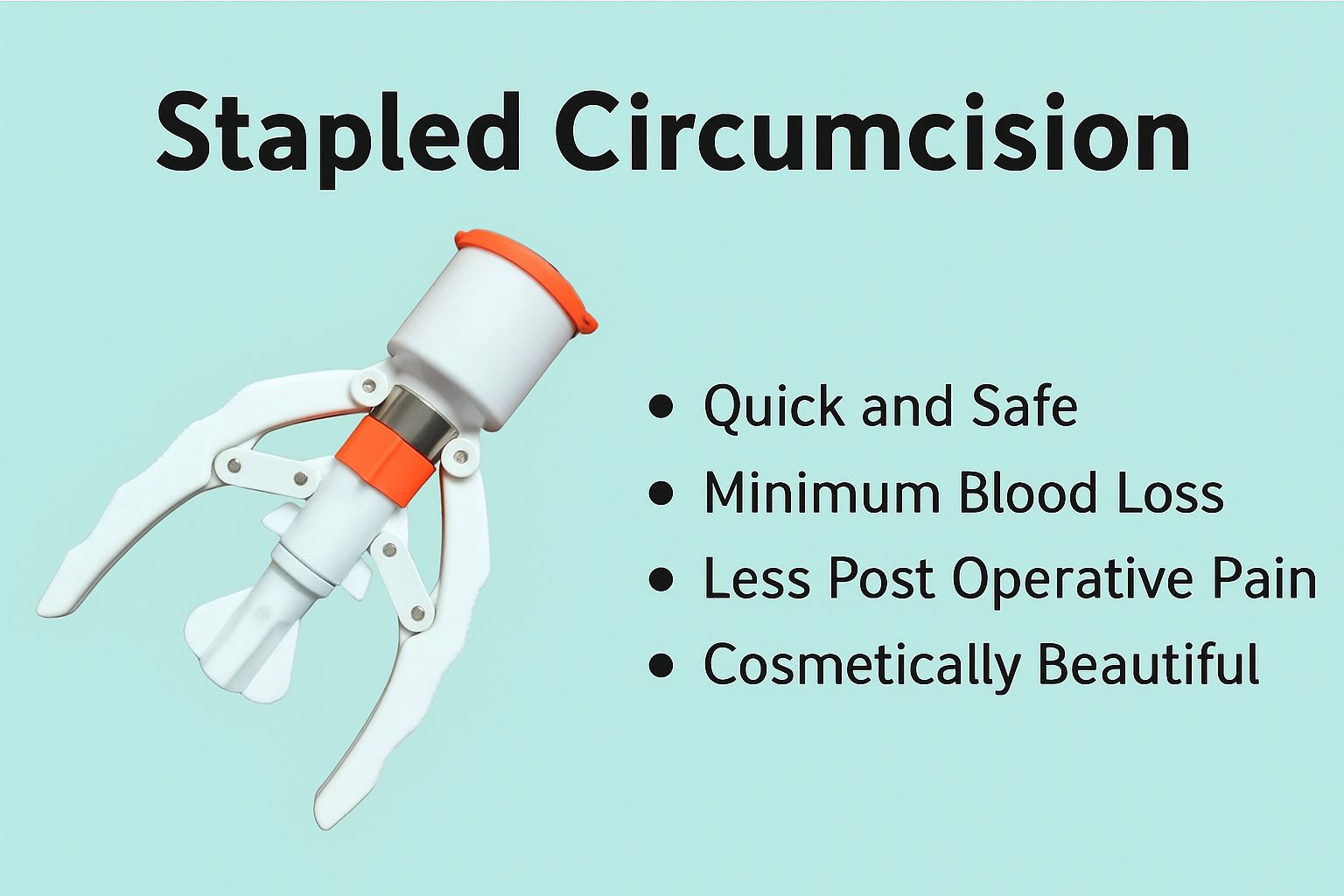
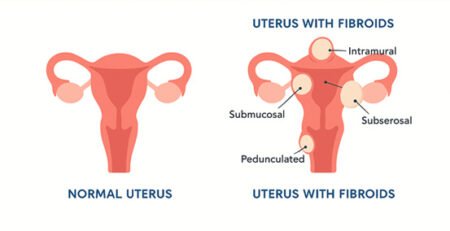
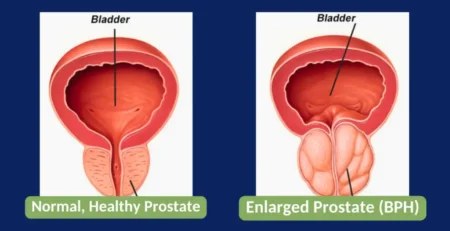
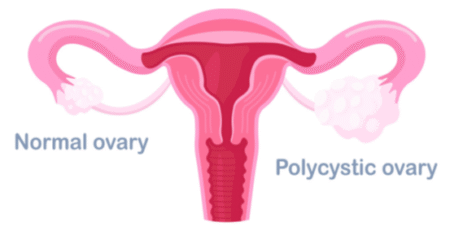
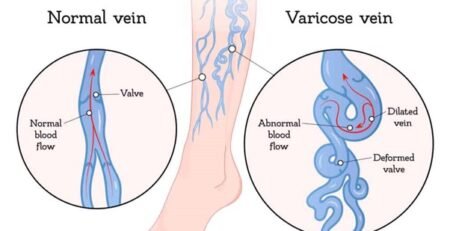

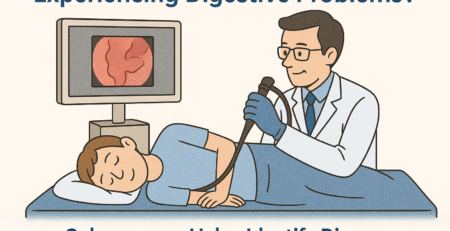

Leave a Reply